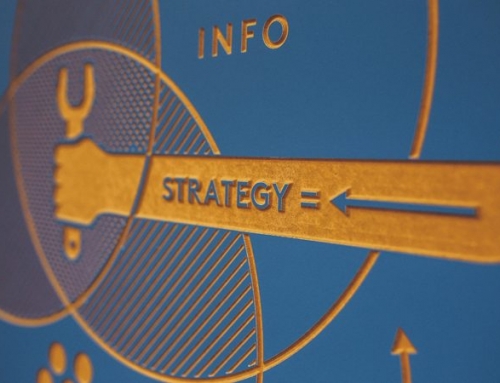Abbreviations and industry specific terms are part and parcel of the digital marketing world, but step outside of the office for a second and you’ll soon realise that most people don’t speak like this. For many customers, especially those who aren’t especially well versed in digital technology or business, hearing and reading too much of this type of language can be extremely off putting. In this article we explain some of the potentially negative effects of industry specific jargon and marketing speak on the average potential customers.
1. It makes Your Message Difficult to Understand
So, you’ve already had wicked numbers for your socials, the click through rate on your site is through the roof you’re ready to onboard a whole a new team of staff for the start of the next quarter. Imagine for a second that you only take a passing interest in technology and that you generate most of your income through manual work that takes place offline. The first sentence in this paragraph is likely to make very little sense to you. Contrary to popular belief, speaking and writing in this way when you’re dealing with customers and even other industry professionals can create needless confusion. Use a professional content writer or spend some time learning how to present information as clearly and simply as possible. We all like to sound clever and professional but using buzzwords as a substitute for actual knowledge and experience is never a good idea.
2. It Can Be Intimidating
Though the world of business used to be defined by the bullish, boardroom type with low empathy and high aggression, this toxic environment is thankfully starting to change. As a professional in any industry, your role is to facilitate the smooth running of a business, provide a quality service and ultimately, make things as easy as possible. There’s rarely a need to say something like “our guys are all over this and it will be delivered by the close of play.” Especially if you’re dealing with small businesses, everyday people and those who may find this type of language irritating or intimidating. Try to ensure the language you use is simple, easy to understand and presents you in a positive light. There a few things that demonstrate success as well as a legion of happy customers who are comfortable when speaking to you.
3. It can seem impersonal and cold.
Obviously customers don’t expect the same kind of relationship with you as they enjoy with their friends and family but it has been proven time and time again that a genuine, human approach to digital communication is far more effective for businesses than jargon heavy content. When signing off from emails, avoid using abbreviated phrases such as “best” if you can. Its normal to you, but most customers will find this extremely rude. Similarly, writing about how you “smashed your last campaign” sounds self aggrandising and boastful. Try to keep this kind of phrasing for inside the office only or for when you’re dealing with other industry professionals. Your customers aren’t stupid, but they aren’t used to having to decipher a language they don’t understand.
4. Like street slang, marketing language is constantly changing.
Language evolves constantly and this is as true on the street as it is in the world of professional business. Terms changes, meanings can shift and brand new words appear all the time. This means that getting it wrong is as bad as saying something like “trill” or “on fleek” in 2019. Rather than trying to keep up with the latest buzz words to sound as if you’re ahead of the curve, focus on doing what you do well and let your reputation speak for itself. Using outdating marketing language such as “touching base” can be cringe inducing for the customer and ultimately, damaging to your reputation. Plain English is always the most effective way to communicate a message clearly and even if you want to include a certain theme or concept to your brand voice, simply cramming in the latest marketing words won’t help you do this.
5. It can look as if you’re overcompensating for a lack of genuine knowledge or experience.
The stereotypical salesperson is one defined by their pushy nature, incessant chatter and ability to bamboozle their clients with words and phrases they don’t understand. Beneath this veneer is usually a sense of desperation and a drive to make a sale my any means necessary. Truly successful salespeople present themselves as relaxed, confident, approachable and most importantly, easy to understand. Some customers may be impressed by lots of industry specific jargon and snappy phrases but be prepared for those who see straight through all of the creative language, the chances are they will simply ask you straight out and say “What are you talking about?” If you’ve ever been in this situation with a customer or a client, you’ll know its extremely awkward and embarrassing for everybody involved. Keep it simple, keep it clear and above all else, don’t try to use a linguistic smoke screen to cover up the fact that you don’t really know what you’re doing.
Conclusion
Industry specific terms and marketing speak are unavoidable. They make life easier for us as industry professionals and can save a lot of time in meetings and emails. Always remember that like the language of the medical profession or the world of finance, this stuff is designed to be kept “in house” rather than as a way of encouraging customers to convert. Try to sound professional but ensure you’re paying attention to the actual meaning behind what you’re saying or writing. Remember to think like a customer, too. They have absolutely no obligation to reflect this style of language and some may even find it so irritating they will simply use another business for their needs. Essentially, you need to be aware that although a good grasp of business jargon can serve you well in certain situations, relying on it all the time can be potentially damaging.






